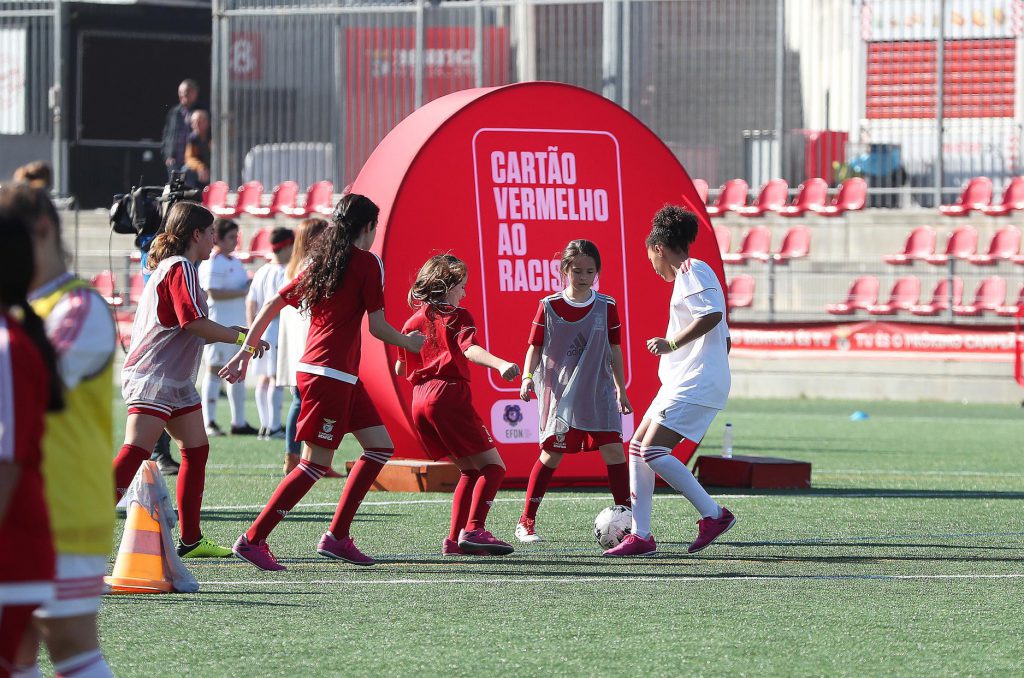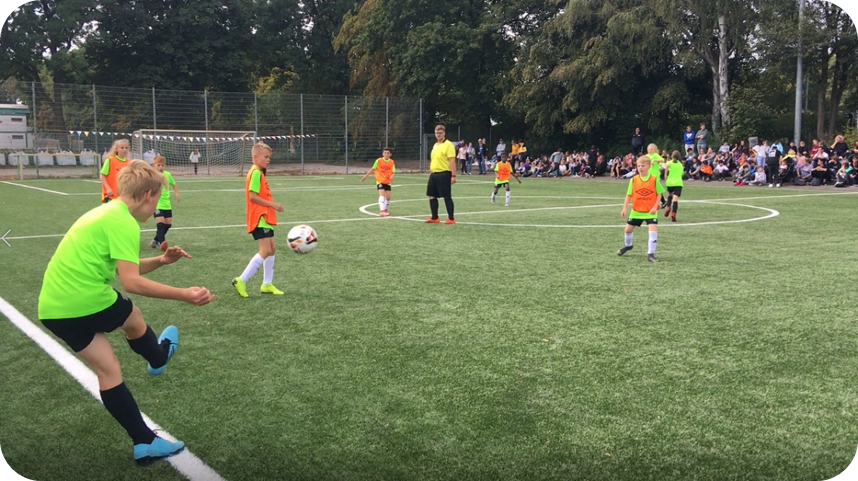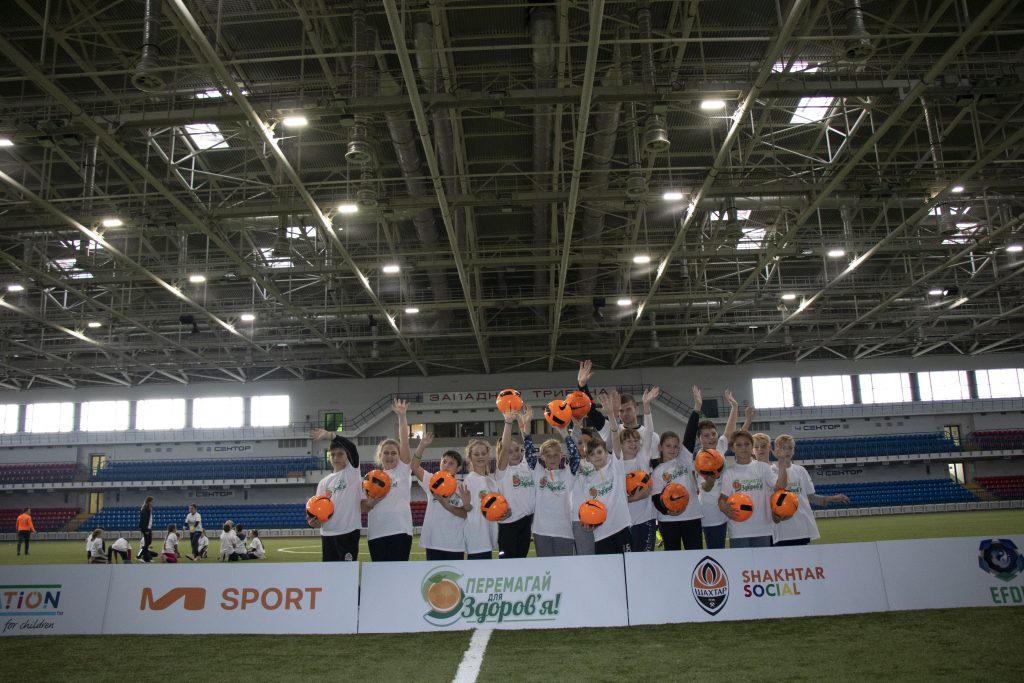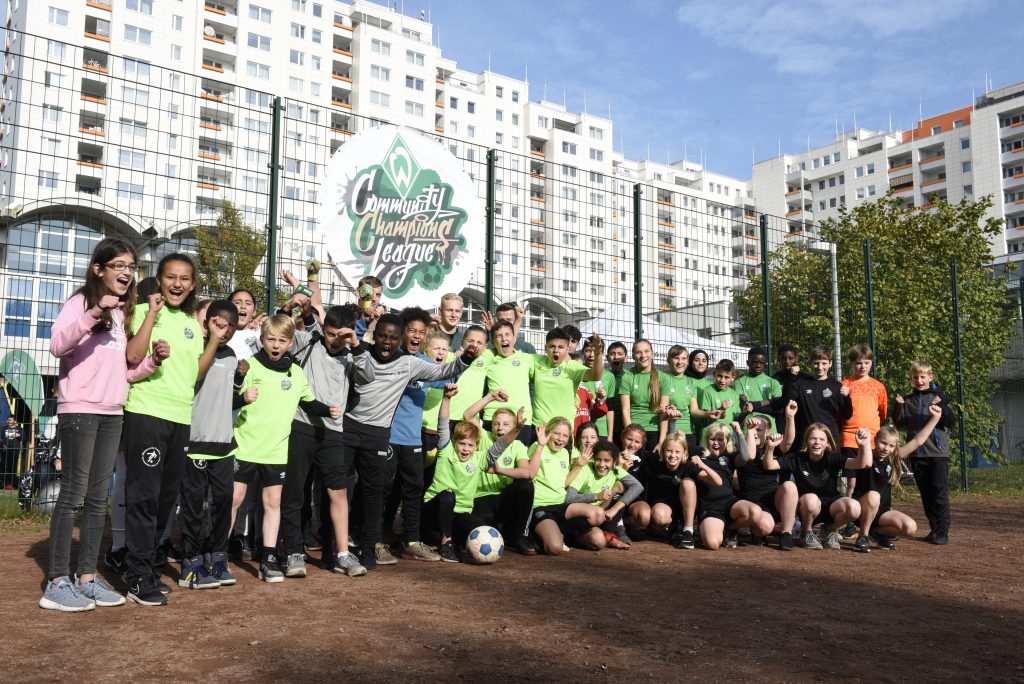Using Football as a tool for education – Action Day
The push for universal access to education continues across the globe. Before the Coronavirus crisis, United Nations (UN) projections showed that by 2030, more than 200 million children would be out of school and only 60% of young people would be completing secondary education. On an encouraging note, before the pandemic the proportion of children and youth out of primary and secondary school had declined from 26% to 19% in 2010 and 18% in 2018.
These estimates indicate the importance of continued promotion of education within communities and also using other avenues. EFDN and its members use football as a social tool and some related initiatives include access to and a lack of education. Some of these initiatives also target the inclusion of refugees and immigrants with UN estimates showing that four million refugee children were out of school in 2017.

Today, Friday September 18, is the dedicated #Morethanfootball Action Weeks Education Day. The European Football for Development Network (EFDN) encourages its members and organisations that have registered for the campaign to showcase the projects they have, are or are planning to implement across their website, social media and where possible traditional media channels.

EFDN runs several education related programmes while its members implement more projects targeting the area of education in their communities. Scoring for Health, which encourages children from 7 to 14 years and their parents to adopt a healthy lifestyle and make them aware of healthy nutrition, is one EFDN programme that relates to education. The Show Racism the Red Card project aims to raise awareness of diversity, foster social cohesion, and reduce physical and verbal violence linked to racism. Community Champions League is another EFDN programme with an education angle that aims to promote social integration through sport through relationship and friendship building while breaking down barriers through the prevention of violence, racism and intolerance in grassroots sports and communities.

Although, accessibility to education is a basic human right, there are still today more than 260 million children who do not attend school. Obtaining a quality education is the foundation to creating sustainable development and it not only improves the quality of life, but access to education can also help locals gain the tools needed to develop efficient solutions to the problems facing their community.

Take part in the Action Day
Sustainable Development Goal (SDG) 4 states that education opens doors to the job market, combats inequality, reduces child mortality, promotes environmental engagement and is essential in breaking the cycle of poverty. The following are suggestions for clubs to highlight programmes that promote education and job opportunities:
- Organise visits to local schools
- Celebrate teachers within your community programmes
- Launch campaigns against early school leaving
- Host webinars/online meetings to share educational resources
- Sending educational resources to community organisations
- Highlight projects that support education in your community
- Wherever possible, create social media content (photos/videos) with beneficiaries of your education/employability programmes



